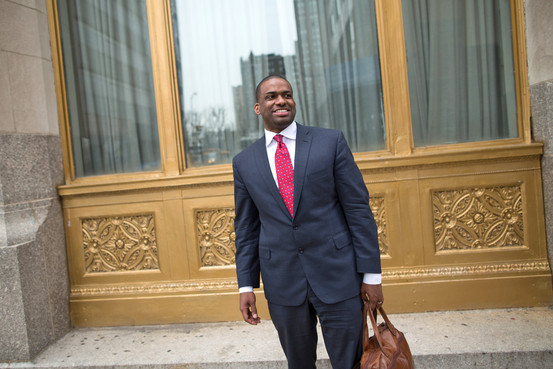Insider Preview: Civil Rights Attorney Shavar Jeffries

Shavar Jeffries’s public talk next week, the first in Kenan’s new practitioner-in-residence program, carries a heady title: “Ethical Leadership: Self-Sacrifice as Public Service.” And it should: Jeffries, a noted civil rights attorney and 2014 Newark, NJ mayoral candidate, has over his career thus far committed himself to notoriously heady issues—urban crime, public education, and the politics that envelop these, and other, arenas. Jeffries’s work, and especially the nature of his leadership, remind me of conversations had over the two years I’ve been involved with the pre-orientation program Project Change. I’m reminded, specifically, of one of the program’s core stipulations: “You will be expected to think critically and creatively about how leaders emerge from everyday experiences to build and sustain inclusive communities that value diversity and promote social justice.”
In preparation for Jeffries’s visit, I’d encourage you to check out two recent articles that give a sense both for Jeffries’s personal background and the political and cultural context from which he, and his work, emerge. Almost a year ago, New York Times columnist David Brooks wrote an op-ed/profile of Jeffries; it talks about Jeffries’s upbringing in and outside Newark, and the ways in which he returned to the city with an eye toward political reform. For a longer read, there’s “Schooled,” Dale Russakoff’s lengthy investigative report in the New Yorker, which details the multi-pronged effort led by Mark Zuckerberg, Cory Booker, the former mayor of Newark, and Chris Christie, current governor of New Jersey, to revamp and reform Newark’s school system, one of the nation’s lowest-performing. Jeffries appears toward the end of the piece—which itself was published just around the time of the mayoral election—advocating for better communication between Newark residents and political leadership. This type of communication seems to require an empathetic balance—a call for both “sides,” so to speak, to see each other, and maybe less “side”-like in the first place. I’m curious, and excited, to hear Jeffries speak this coming week—to hear about how he strives to achieve empathetic balance in his own leadership, and how “self-sacrifice” has marked his growth as a leader.
—MD
